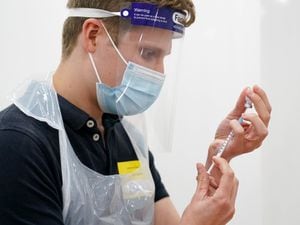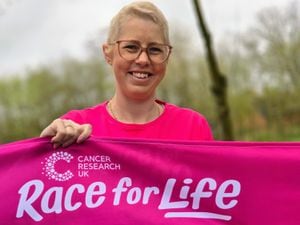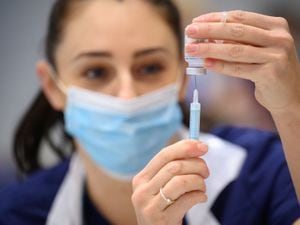200 children treated for eating disorders in the Black Country and Staffordshire
More than 200 children in the Black Country and Staffordshire have been treated for eating disorders in the last three years.

New figures show patients as young as eight have been treated for conditions such as anorexia and bulimia across the region.
Figures released under Freedom of Information show a total of 224 children have been referred to the NHS for eating disorders since 2014/15.
There were 168 children and teenagers referred to the Black Country Partnership NHS Foundation Trust, and 28 each to Dudley and Walsall Mental Health Partnership NHS Trust, and South Staffordshire and Shropshire Healthcare NHS Foundation Trust.
The average waiting times for patients' first treatment sessions varied from around four weeks to under two weeks across the three trusts.
A wait of 29 weeks by a patient was initially noted by the Black Country Partnership NHS Foundation Trust, although this was later discovered to be an error.
Wolverhampton Liberal Democrat campaigner Rob Quarmby said: "I think it is a scandal that children are being denied prompt access to vital mental health services simply because of the postcode lottery. It 's unforgivable that some patients have to wait more than 200 days for an appointment. We wouldn't expect a child to wait so long to be treated for a physical ailment so why is it any different for eating disorders?"
A spokesman from the Black Country Partnership HNS Foundation Trust, said: "Our utmost priority is to provide high-quality care that helps the people who use our services get better as quickly as possible. This remains our priority throughout their treatment. Having further explored the data shared as part of a Freedom of Information (FOI) request, we have identified that there is an error regarding the patient wait of 29 weeks.
"The patient who was stated as waiting 29 weeks for their first appointment was seen on the day of referral by an eating disorder psychologist in the Trust’s Child and Adolescent Mental Health Services (CAMHS). Following this initial contact, the patient was seen by the specialist eating disorder psychiatrist within a month of being referred and has been offered regular appointments.
"Following the publication of Future in Mind by the Department of Health, the Trust has been working with our commissioning partners – Wolverhampton Clinical Commissioning Group (CCG), and Sandwell and West Birmingham CCG – investing money to provide a dedicated under-19 years service for eating disorders. This welcome investment has led to new resources and developments which will benefit patients, families and carers. Combined with improved partnership working with GPs, these developments are helping to raise awareness of eating disorders and the support available to those who need it. This has led to an increase in people accessing this help.
"As part of the FOI request we provided a ‘cost per patient’ price which is achieved by dividing the total service budget by the number of patients in contact with the service. When comparing this data with data provided by other NHS organisations it is important to note that some may have provided a ‘cost per contact’ price which is calculated differently and reflects the multiple contacts a patient has during treatment over a year. Therefore these figures should not be compared to each other. National guidance and standards recommend that we work with young people with eating disorders for a minimum of one year."
Dudley and Walsall Mental Health Partnership NHS Trust said: "The Child and Adolescent Mental Health Eating Disorders service has very specific timescales attached to it, an urgent case will be seen within one week of referral and a routine case within four weeks; to date these timescales have not been breached”.
And the South Staffordshire and Shropshire Healthcare NHS Foundation Trust said: "The team are passionate about the service and have done lots of work to promote it, for example establishing proactive links with GPs to explain referral criteria, holding an open day, and partnering with BEAT eating disorders charity to put on a series of training sessions for professionals about how to spot an eating disorder and what to do next.
"The success of the service has been recognised by commissioners who are investing more, with more staff are being recruited."





